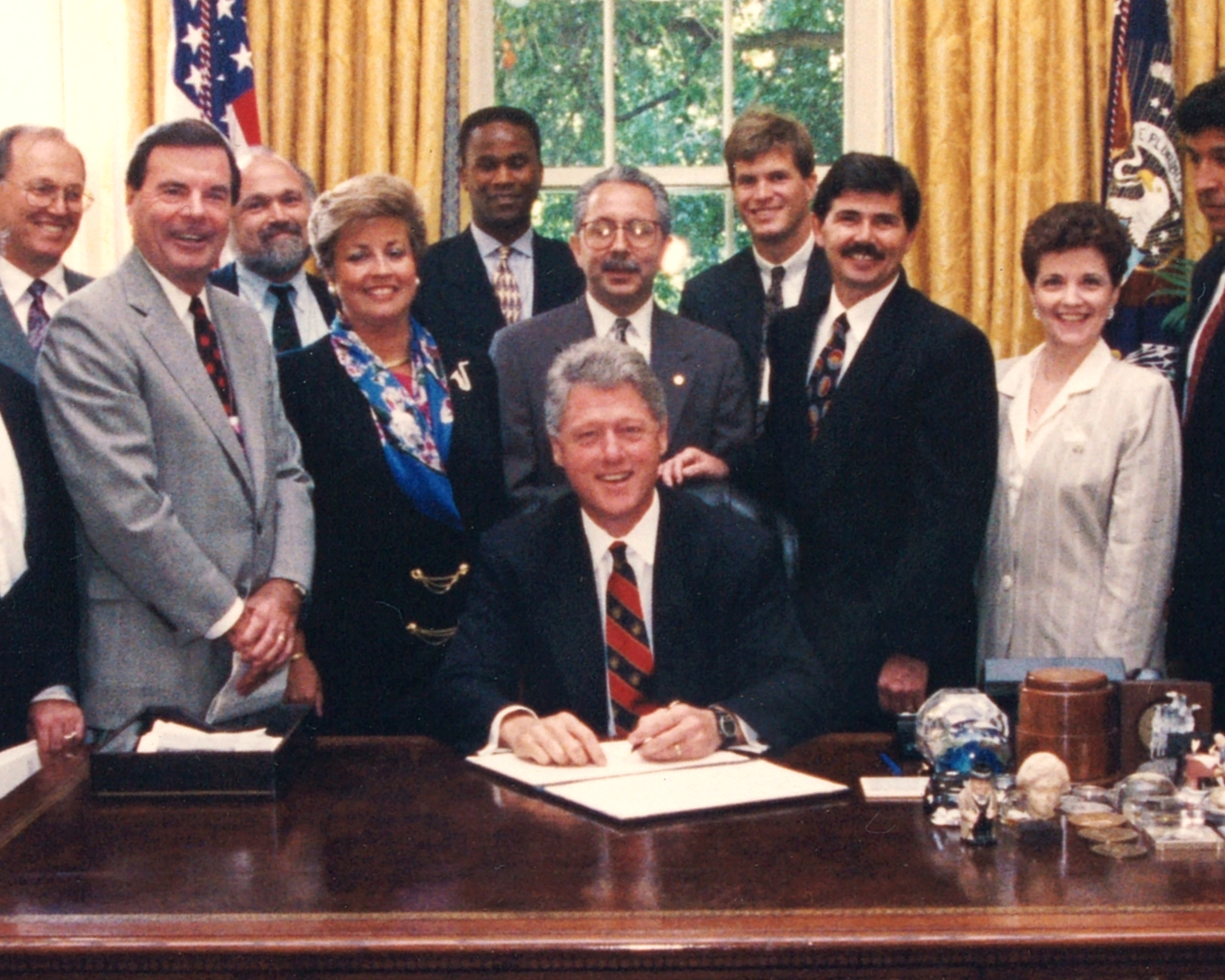
Twenty years ago, I stood next to President Bill Clinton as he signed the National Voter Registration Act (NVRA) into law. This monumental legislation made it easier for millions of Americans to register to vote by offering registration at driver's license facilities. Before 1993, registrants had to seek out, or be sought out by, an official deputy registrar. Rules varied by state and burdensome procedures prevented so many from voting. Today, 16 million voters get registered each year thanks to the so-called "Motor Voter" law.
Working to pass the legislation is among my proudest achievements, especially since we faced an uphill battle in Illinois. Then-Gov. Jim Edgar refused to offer the new registration forms. Along with the League of Women Voters and the City of Chicago, we sued Edgar and state officials to force implementation. We won.
It's a simple premise: We should not place unnecessary barriers between a voter and her ballot. Unfortunately in recent years, state governments across our country have renewed the push to enact barriers. According to the Brennan Center for Justice at New York University School of Law, 180 restrictive voting bills were introduced in 41 states during 2011 and 2012. Twenty-three laws passed. That's an onslaught of obstructing democracy.
Voting rights advocates are now focused on the Supreme Court, which will soon offer a historic opinion on whether Arizona can demand proof of citizenship from individuals submitting an NVRA voter registration form. For two decades, applicants in every state have confirmed their citizenship by checking a box on the form and attesting to its accuracy with their signature.
Arizona contends that non-citizens are registering to vote. They point to 19 individuals (out of 2,734,108 registered voters) who were not citizens and improperly registered in 2005 and 2007. I suspect many were the victims of a language barrier or simple confusion, not perpetrators of a crime. Regardless of intent, there are consequences for registering illegally, including never becoming a citizen, being deported or perjury charges.
But those 19 cases are dwarfed by the 31,550 people whose registration forms were rejected in Arizona during the same period -- overwhelmingly eligible U.S. citizens who did not provide proper identification. The number of illegal registrants is comparable to how many players the Blackhawks suit up for a game; the number of voters who were needlessly rejected could fill the United Center. This dramatic overreach illustrates a troubling trend in "voter security" laws that are being pushed by Republicans legislators across the country.
As we celebrate the anniversary of Motor Voter, let's remember that NVRA was passed to strengthen our democracy and engage its citizens. If the Supreme Court rules in Arizona's favor, it will have the opposite effect and erect yet another obstacle to American voters.
